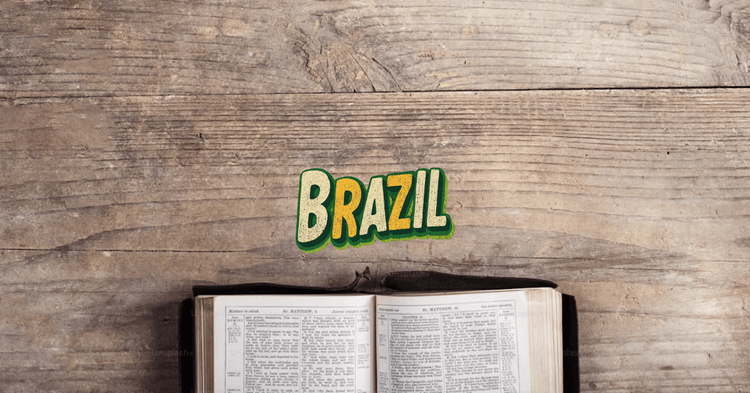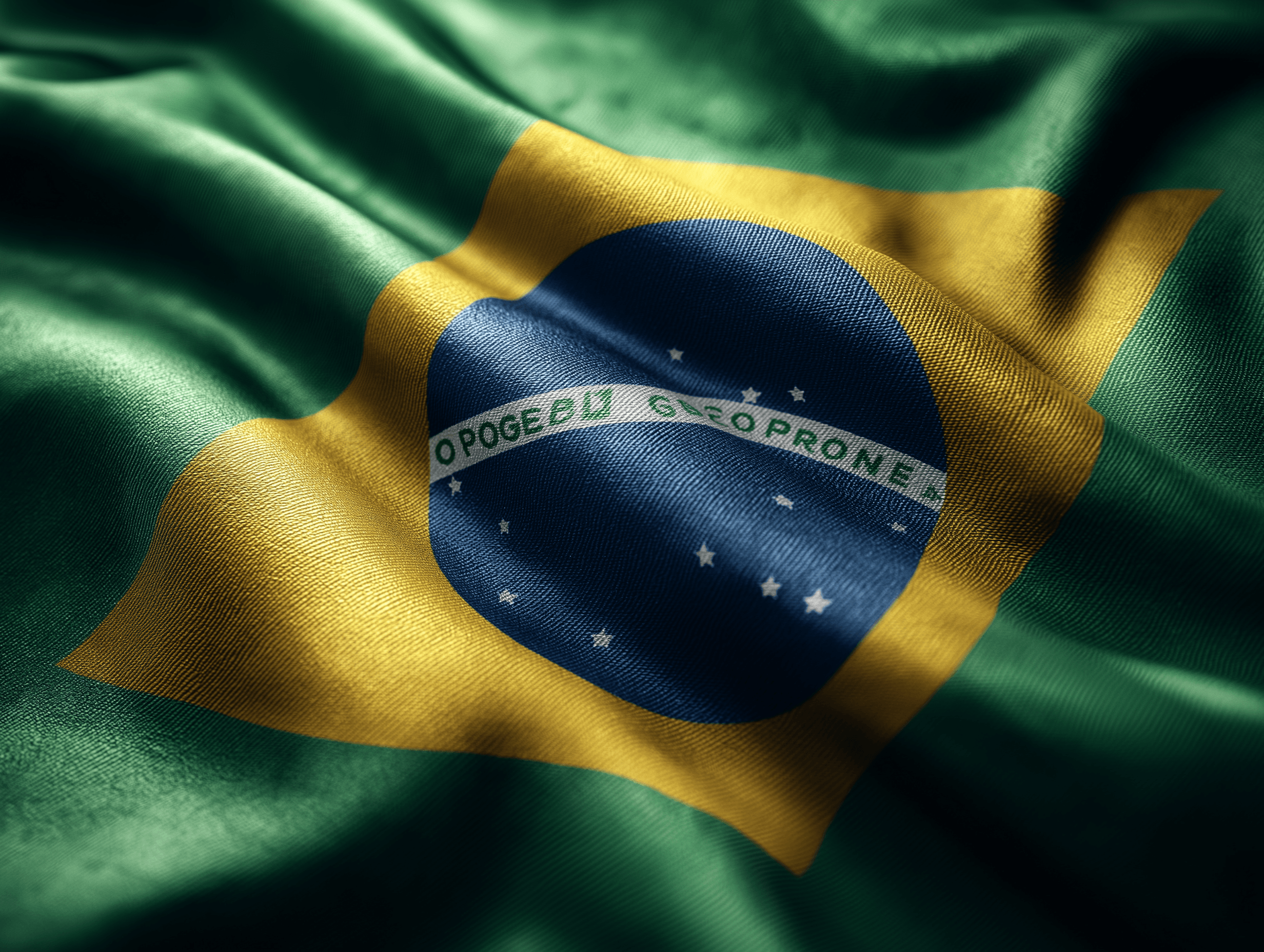Why Portuguese Is Brazil’s Official Language | Reason Explained

Brazil is the lone Portuguese-speaking nation in the entire American continent. This linguistic uniqueness often leads people to ask: Why is Portuguese the official language of Brazil? To answer this, we'll explore the history of several treaties and cultural evolution in this blog. But first, let’s set the stage.
We'll also figure out how young learners can explore intriguing topics like this one and express their insights through structured speeches, TED-style storytelling, and global discussions with PlanetSpark Public Speaking course.
Why Portuguese is Brazil’s Official Language- The Reason
The reason Portuguese is Brazil’s official language lies in its colonial history and geopolitical agreements. Brazil was colonized by Portugal in the year 1500, when Portuguese explorer Pedro Álvares Cabral landed on its shores. This colonization was legitimized by the Treaty of Tordesillas, a pivotal agreement between Spain and Portugal that divided the newly discovered lands of the world between them. As a result, Brazil fell under Portuguese control, while most of the rest of Latin America was claimed by Spain. Prior to colonization, Brazil’s indigenous population primarily spoke native languages such as Tupian, but by the 18th century, Portuguese had become the dominant and official language of the country. Over time, Brazil chose to preserve and develop its Portuguese linguistic heritage, distinguishing itself from its Spanish-speaking neighbors. Today, Brazilian Portuguese not only remains the country’s official language but also plays a leading role in shaping the global Portuguese-speaking community through its cultural exports, including music, television, and literature.
Brazil: The Giant of South America

Brazil occupies nearly half of South America’s landmass. With over 215 million people, it is the fifth-largest country in the world by area and population. On the eastern side of the continent, it stretches 4,500 miles along the Atlantic Ocean, forming a vast triangle that touches every South American country except Chile and Ecuador.
And yet, despite its immense size and diversity, Brazil has one unifying linguistic thread: Portuguese.
Turn Geography into Great Speeches!
Help your child turn facts about countries like Brazil into powerful presentations. With PlanetSpark’s Public Speaking Program, kids learn to speak confidently on global topics.
Book a Free Trial Today
A Tale of Two Empires: Portugal and Spain
To understand why Brazil speaks Portuguese, we need to rewind to the 15th century the Age of Discovery.
At that time, two European powers, Portugal and Spain, were leading the charge in maritime exploration. Their aim? To discover new trade routes to the riches of India, especially the spice trade, which was immensely valuable.
Portugal took the lead by charting a path around the African coast, eventually rounding the Cape of Good Hope. Spain, meanwhile, looked west. In 1492, Christopher Columbus, financed by the Spanish crown, landed in the Americas, believing he had found a new route to Asia.
Both countries soon realized the vast potential of the newly discovered lands and tensions started rising. To avoid direct conflict, they turned to the most powerful mediator of the time: the Pope.
Portuguese Colonization of Brazil
While Spain went on to colonize much of Central and South America, Portugal focused on Brazil. The Portuguese influence shaped Brazil's governance, economy, religion, and most importantly language.
Initially, the Portuguese language wasn’t widespread in Brazil. Indigenous languages, particularly Tupian, were commonly spoken. However, as Portuguese settlers increased and the colonial administration established itself, Portuguese gradually became the dominant language.
By the 18th century, Portuguese was officially declared the national language of Brazil.
Brazilian Portuguese vs European Portuguese
Even though Brazilians and Portuguese people speak the same language, there are notable differences in pronunciation, intonation, and vocabulary.
Brazilian Portuguese tends to be more phonetically open and musical.
European Portuguese often sounds more clipped and formal.
However, in formal writing, the differences are minimal, and the languages are mutually intelligible. This is somewhat similar to the differences between British and American English.
Global Impact of Portuguese Language
There are over 250 million Portuguese speakers worldwide, making it the sixth most spoken language globally. It is the official language in ten countries, including:
Portugal
Brazil
Angola
Mozambique
Cape Verde
Guinea-Bissau
East Timor
Equatorial Guinea
Macau (along with Chinese)
São Tomé and Príncipe
Among all these, Brazil has the largest population of Portuguese speakers, making it a cultural and linguistic hub for the Lusophone world.
In recent decades, Brazilian culture through music, telenovelas (soap operas), and media has influenced the way Portuguese is spoken around the world.
Help Your Child Speak on Global Topics with Impact!
From the rise of Portuguese to cultural exchange, PlanetSpark equips kids to research, structure, and deliver confident speeches on global subjects.
Enroll Now to book a free demo class
The Strategic Importance of Language
Language is more than just communication t’s about identity, unity, and global interaction. Brazil’s decision to maintain Portuguese as its official language has helped it:
Distinguish itself from Spanish-speaking neighbors.
Build a unique cultural brand on the global stage.
Act as a bridge between the Americas and the Lusophone world.
How This Ties Into Public Speaking and Communication
Understanding the linguistic journey of Brazil is essential not just from a historical perspective but also from a communication standpoint. At PlanetSpark, we emphasize the importance of:
Knowing language origins to enhance storytelling.
Using cultural history to build stronger narratives.
Practicing articulate speech in any language, including Portuguese.
Our Public Speaking Program offers children the tools to explore such topics confidently. Here's how PlanetSpark supports young learners in becoming powerful speakers:
- 1:1 Public Speaking Coaching: Each child receives personalized coaching by communication experts trained in child psychology. This ensures every student builds their voice, story, and presence.
- TED-Style Training & Storytelling Skills: Kids learn to craft compelling narratives using techniques like “hook, message, story, and call-to-action the very method used in captivating talks about historical subjects such as the Portuguese influence in Brazil.
- Global Exposure & Real-Time Practice: Students participate in live debates and storytelling sessions with peers from 13+ countries, gaining the confidence to express themselves on international platforms.
If your child is fascinated by history, geography, or language, PlanetSpark’s public speaking course can help them turn curiosity into impactful speeches.

Conclusion
Brazil’s unique linguistic heritage is a fascinating blend of exploration, politics, and cultural pride. Unlike the rest of Latin America, Brazil speaks Portuguese not by accident, but by a specific historical trajectory shaped by empires, treaties, and migrations.
This story is more than a language lesson it's a public speaking opportunity. Students who explore such rich narratives learn how to inform, persuade, and inspire audiences across the globe.
FAQs: Why Portuguese is Brazil's Official Language?
Q. What language did Brazil speak before Portuguese?
A. Indigenous languages, mainly Tupian.
Q. How many countries have Portuguese as their official language?
A. Nine countries and one region (Macau).
Q. Why is Portuguese the official language of Brazil?
A. Because Portugal colonized Brazil, bringing the Portuguese language with them.
Q. Which is the most spoken language in Brazil?
A. Portuguese is the most widely spoken and official language.
Q. Portuguese language is regulated by which authority in Brazil?
A. The Academia Brasileira de Letras.
Personalized Communication Report
Record a video to get a AI generated personalized communication report for your child

Hi There, want to try these
tips for your child with
LIVE with our expert coach?
Let's check your child's
English fluency